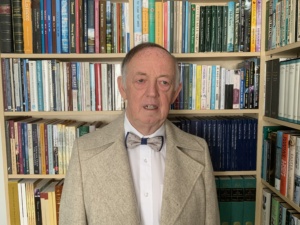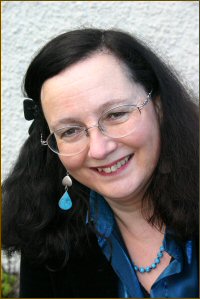 Órfhlaith Ní Chonaill was born in Tralee, Co. Kerry, in 1955. At the age of five, she became a poet. She attended the local primary and secondary school in Balloonagh, Tralee. Her first travels took her to Dublin where she studied Religious Education in the Mater Dei Institute. And, oh yes, there was a magical trip to Lismore! It was May and there were bluebells and wild garlic in the woods. During those years she was still writing poetry and songs. She taught for a year in Cork and a year in Dublin, but a questioning of religion had begun and her career in religious education ended.
Órfhlaith Ní Chonaill was born in Tralee, Co. Kerry, in 1955. At the age of five, she became a poet. She attended the local primary and secondary school in Balloonagh, Tralee. Her first travels took her to Dublin where she studied Religious Education in the Mater Dei Institute. And, oh yes, there was a magical trip to Lismore! It was May and there were bluebells and wild garlic in the woods. During those years she was still writing poetry and songs. She taught for a year in Cork and a year in Dublin, but a questioning of religion had begun and her career in religious education ended.
In 1977, she returned to Dublin to marry Robin, the love of her life. They moved to Sligo in 1980 and the boys, Kevin and Rowan, were born. By then the need to write had become urgent, so Órfhlaith joined the Markievicz Writers’ Group with Dermot Healy in Sligo. Rowan, the baby at the time, was wired up to headphones and a stereo player for an hour each day while his mother pounded away on an old typewriter, reinventing herself as the writer she had always wanted to be. Her poems, short stories and interviews were published in Force 10 and other magazines. She attended night classes in St Angela’s College and earned a Certificate in Irish Literature in English from UCG.
The next part of the journey was the most exotic and life-changing. Órfhlaith and her family lived in Nairobi from March 1993 until November 1996. She was bowled over by the culture and by the local people with their openness, their (very Irish) sense of humour, their cheerfulness and their resilience, often in the face of great adversity. For the first time in her life, she had to redefine herself as a white woman. She found herself belonging, somehow, to the wrong tribe. The ghosts of coloniser and colonised were still thick in the air. The Kenyan experience found its first timid expression in a short story called The Laughing God.
Back in Ireland, she obtained an M. Phil (Creative Writing) from Trinity College Dublin (1998). During that year, a second African story, Kikuyu Grass, was published in the Sunday Tribune and short-listed for a Hennessy Award. These two stories later grew into the African novel, The Man With No Skin.
Órfhlaith went to Boston in 2001, to study with Pat Schneider, the creative writing guru, who developed the Amherst Writers & Artists’ creative writing workshop. The belief behind the method is that genius is hidden everywhere; it is in every person waiting to be evoked, enabled, supported and celebrated. She has been facilitating writing workshops in Sligo and around the country for seven years.
The Man With No Skin was published in Colorado in 2005. It was the recipient of IPPY (Independent Book Publishers’) and CIPA (Colorado Book Publishers’) Awards in the US in 2006. It was very well reviewed. Eoghan Harris, in his column in the Sunday Independent said that it ‘carries big ideas with the deceptive ease of JM Coetzee’s Disgrace, but has the same eye for local African colour as Alexander McCall smith in his comic classic, The No 1 Ladies Detective Agency’ Mark my words, this novel is going to go to Oprah and beyond.’
The Man With No Skin is available from Amazon.com and in bookshops in The USA. A distribution deal for Ireland is yet to be agreed.
Web Site: www.writersinksligo.com
Details of this year’s festival programme can be found elsewhere on this website.
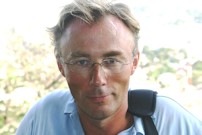 Born in 1967, Tim Butcher was on the staff of the Daily Telegraph from 1990 to 2009 serving as chief war correspondent, covering all major conflicts across the Balkans, Middle East and Africa. His first book, Blood River, an account of his 2004 journey through DR Congo overland from Lake Tanganyika and down the Congo River, reached Number 1 in the Sunday Times bestseller list and was the only non-fiction title in the Richard & Judy Book Club 2008. It was also shortlisted for the Samuel Johnson Prize, the Dolman Best Travel Book Award and the Writers’ Guild of Great Britain Best Book award. Tim’s second book, Chasing the Devil, describes a 350 mile trek through Sierra Leone and Liberia following a trail blazed by Graham Greene and recounted in Greene’s Journey Without Maps (1936). Tim is currently based in Cape Town with his family and is a frequent contributor to the BBC radio programme ‘From Our Own Correspondent’ and writes regularly for the international press.
Born in 1967, Tim Butcher was on the staff of the Daily Telegraph from 1990 to 2009 serving as chief war correspondent, covering all major conflicts across the Balkans, Middle East and Africa. His first book, Blood River, an account of his 2004 journey through DR Congo overland from Lake Tanganyika and down the Congo River, reached Number 1 in the Sunday Times bestseller list and was the only non-fiction title in the Richard & Judy Book Club 2008. It was also shortlisted for the Samuel Johnson Prize, the Dolman Best Travel Book Award and the Writers’ Guild of Great Britain Best Book award. Tim’s second book, Chasing the Devil, describes a 350 mile trek through Sierra Leone and Liberia following a trail blazed by Graham Greene and recounted in Greene’s Journey Without Maps (1936). Tim is currently based in Cape Town with his family and is a frequent contributor to the BBC radio programme ‘From Our Own Correspondent’ and writes regularly for the international press.


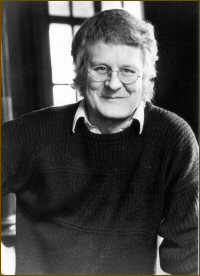 Redmond O’Hanlon Redmond O’Hanlon is an explorer in the nineteenth-century mould. In addition to his four bestselling travel books, Into the Heart of Borneo, In Trouble Again, Congo Journey and Trawler, he has published scholarly work on nineteenth-century science and literature. For fifteen years he was the Natural History editor of the Times Literary Supplement. He lives outside Oxford with his wife and two children.
Redmond O’Hanlon Redmond O’Hanlon is an explorer in the nineteenth-century mould. In addition to his four bestselling travel books, Into the Heart of Borneo, In Trouble Again, Congo Journey and Trawler, he has published scholarly work on nineteenth-century science and literature. For fifteen years he was the Natural History editor of the Times Literary Supplement. He lives outside Oxford with his wife and two children.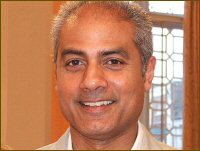 George Alagiah joined the BBC in 1989 after seven years in print journalism with South Magazine. He has contributed to several British newspapers including The Guardian, The Daily Telegraph, The Independent and the Daily Express. He has spoken at the Royal Geographical Society, the Royal Society for Arts and at the Royal Overseas League. His appearances at literary festivals include Cheltenham, Keswick, Hay-on-Wye and London. George is well known for his ability as an event host and his great anecdotal delivery as an after dinner speaker.
George Alagiah joined the BBC in 1989 after seven years in print journalism with South Magazine. He has contributed to several British newspapers including The Guardian, The Daily Telegraph, The Independent and the Daily Express. He has spoken at the Royal Geographical Society, the Royal Society for Arts and at the Royal Overseas League. His appearances at literary festivals include Cheltenham, Keswick, Hay-on-Wye and London. George is well known for his ability as an event host and his great anecdotal delivery as an after dinner speaker. Órfhlaith Ní Chonaill was born in Tralee, Co. Kerry, in 1955. At the age of five, she became a poet. She attended the local primary and secondary school in Balloonagh, Tralee. Her first travels took her to Dublin where she studied Religious Education in the Mater Dei Institute. And, oh yes, there was a magical trip to Lismore! It was May and there were bluebells and wild garlic in the woods. During those years she was still writing poetry and songs. She taught for a year in Cork and a year in Dublin, but a questioning of religion had begun and her career in religious education ended.
Órfhlaith Ní Chonaill was born in Tralee, Co. Kerry, in 1955. At the age of five, she became a poet. She attended the local primary and secondary school in Balloonagh, Tralee. Her first travels took her to Dublin where she studied Religious Education in the Mater Dei Institute. And, oh yes, there was a magical trip to Lismore! It was May and there were bluebells and wild garlic in the woods. During those years she was still writing poetry and songs. She taught for a year in Cork and a year in Dublin, but a questioning of religion had begun and her career in religious education ended.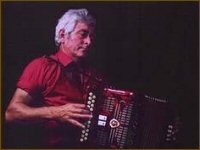 Maidhc Dainín Ó SéBeidh an scríbhneoir agus ceoltóir cáiliúil Maidhc Dainín Ó Sé ar dhuine de na haoichainteoirí a bheidh ag teacht go dtí an Lios Mór, Co Phort Láirge i mbliana don bhFéile Scríbhneoireachta Taistil Immrama. Beidh seisiún ‘Caint agus Comhrá’ i gcomhluadar Mhaidhc Dainín idir a 11.00r.n. agus 2.00i.n.ar an Satharn, 14 Meitheamh 2007 – saorchead isteach agus fáilte roimh chách.
Maidhc Dainín Ó SéBeidh an scríbhneoir agus ceoltóir cáiliúil Maidhc Dainín Ó Sé ar dhuine de na haoichainteoirí a bheidh ag teacht go dtí an Lios Mór, Co Phort Láirge i mbliana don bhFéile Scríbhneoireachta Taistil Immrama. Beidh seisiún ‘Caint agus Comhrá’ i gcomhluadar Mhaidhc Dainín idir a 11.00r.n. agus 2.00i.n.ar an Satharn, 14 Meitheamh 2007 – saorchead isteach agus fáilte roimh chách.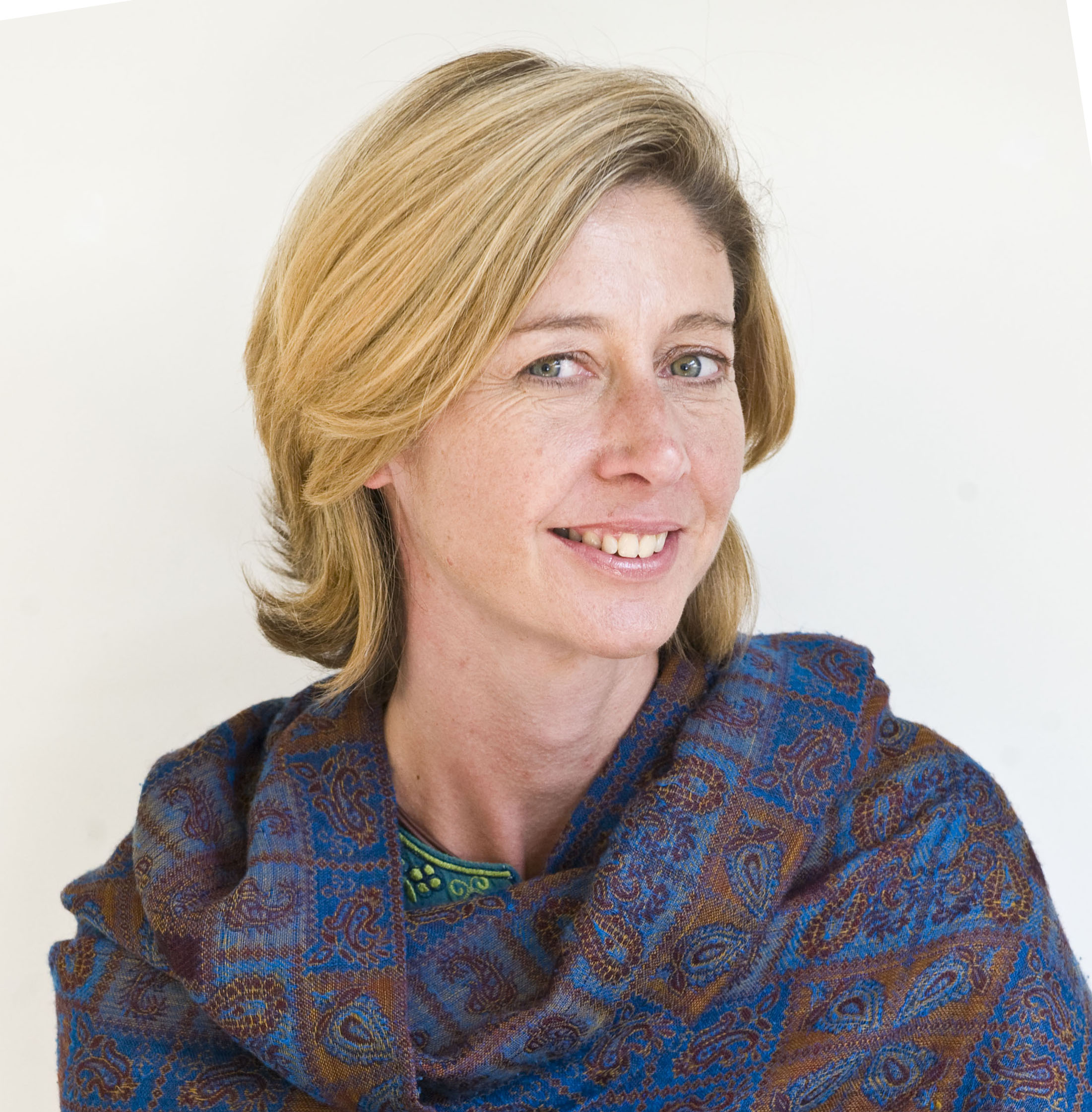 Christina Lamb is one of Britain’s leading foreign correspondents and a bestselling author. She has reported from most of the world’s hotspots but her particular passions are Afghanistan and Pakistan which she has covered since an unexpected wedding invitation led her to Karachi in 1987 when she was just 21. Within two years she had been named Young Journalist of the Year. Since then she has won numerous awards including five times being named Foreign Correspondent of the Year and Europe’s top war reporting prize, the Prix Bayeux. She was made an OBE in 2013. Last year she won Amnesty International’s Newspaper Journalist of the Year for reporting from inside Libyan detention centres. Currently Chief Foreign Correspondent for the Sunday Times of London, her postings have included South Africa, Pakistan, Brazil and Washington and she has recently reported on the refugee crisis across Europe and camps for women enslaved by Boko Haram in Nigeria and ISIS in Iraq.
Christina Lamb is one of Britain’s leading foreign correspondents and a bestselling author. She has reported from most of the world’s hotspots but her particular passions are Afghanistan and Pakistan which she has covered since an unexpected wedding invitation led her to Karachi in 1987 when she was just 21. Within two years she had been named Young Journalist of the Year. Since then she has won numerous awards including five times being named Foreign Correspondent of the Year and Europe’s top war reporting prize, the Prix Bayeux. She was made an OBE in 2013. Last year she won Amnesty International’s Newspaper Journalist of the Year for reporting from inside Libyan detention centres. Currently Chief Foreign Correspondent for the Sunday Times of London, her postings have included South Africa, Pakistan, Brazil and Washington and she has recently reported on the refugee crisis across Europe and camps for women enslaved by Boko Haram in Nigeria and ISIS in Iraq.